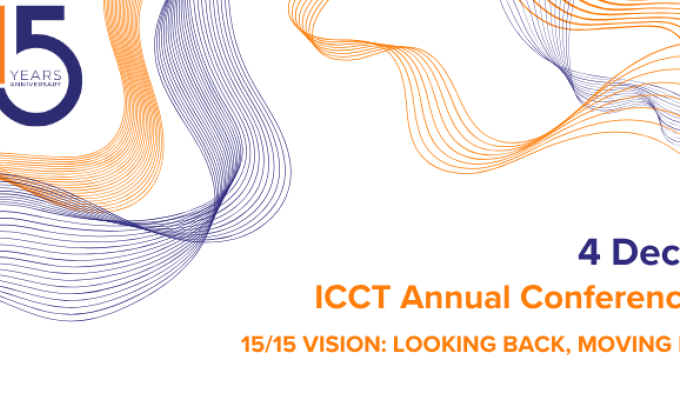The recently initiated talks between the Colombian government and the terrorist organisation Revolutionary Armed Forces of Colombia (FARC) have given rise to the hope that, after decades of violence, peace may be at hand. In many respects, negotiations between states and terrorist organisations seem the ideal way to end such long-running struggles. After all, peace talks appear inherently non-violent and force participants to take seriously each others’ demands and grievances with the ultimate aim of reaching a mutually acceptable solution. Recent history, however, has shown that negotiations can be no more than a pretext for participants to gain time. Sometimes, talks generate more violence than they solve. Even more disconcerting, one-sided military victories may offer better prospects for lasting peace than negotiated settlements. In short, our expectations about what peace processes can realistically deliver must take into account the serious obstacles such talks face.
For the parties to a conflict, negotiations are seldom their first choice. States, as well as their terrorist or insurgent counterparts, often prefer military victory over talks as this allows them to one-sidedly impose their demands and to maximise their gains. Peace talks become an attractive option only when one of the sides is faced with impending defeat, or when a lengthy stalemate has been established that cannot be broken by either side through the use of military means alone.
That stalemates can form the basis for attaining lasting peace was illustrated by the 1998 Good Friday Agreement, which put an end to decades of violence between the British government and the Irish Republican Army (IRA). On the other hand, the past few decades have offered plentiful examples of parties who found themselves in dire straits and displayed a willingness to talk merely as a ruse in order to gain time to recover from recent losses or to prepare new offensives. Such tactics were used by the FARC between 1998 and 2002. Similarly, the Sri Lankan Tamil Tigers, the Northern Irish IRA and Spain’s Euskadi Ta Askatasuna (ETA) have also been known to cloak violent motives in peaceful rhetoric.
A second problem is that armed groups like the FARC, the Taliban and the IRA are seldom homogenous organisations. Instead, they tend to consist of a multitude of factions amongst which there exist considerable differences of opinion regarding the organisations’ goals, the means that can be used to achieve these goals, and the extent to which any kind of compromise is acceptable. Furthermore, it can be difficult to discern who is in charge and who to negotiate with. As a result, negotiation processes often threaten the interests or ambitions of one or more sub-groups. Consequently, negotiations can lead to the formation of what the American academic Stephen Stedman calls "spoilers"; splinter groups intent on using extreme violence to undermine the talks.
The disastrous influence of spoilers has been witnessed repeatedly over the course of the past couple of decades, but can perhaps best be illustrated using the example of the Israeli-Palestinian peace process of the 1990s. Having no role to play in the talks between the Israeli government and Yasser Arafat’s Fatah movement, the Palestinian Islamic Jihad (PIJ) and Hamas launched a campaign of suicide bombings against civilian targets in Israel intended to derail the negotiations. The same peace process also showed that spoilers are not necessarily limited to any one side; in November 1995, Israeli Prime Minister Yitzhak Rabin was assassinated by an ultra-orthodox Jew, who acted out of opposition to any kind of compromise with the Palestinians.
Norway played an important role during the Israeli-Palestinian peace by hosting secret talks between the parties that eventually led to the signing of the Oslo Accords in 1993. At the time, hopes were high that this agreement signalled the start of a move towards lasting peace. Today, Norway is once again involved in negotiations between a state and a terrorist organisation, yet it remains to be seen whether the Colombian government and the FARC can improve on the eventual outcome of the Israeli-Palestinian peace process, which fell apart amidst the violence of the Second Intifada in 2000.
The third paradox of negotiations between states and terrorist organisations is perhaps the most unpleasant. As the 2012 Human Security Report indicates, one third of all peace agreements, and almost 40 percent of ceasefires, are breached within five years. According to the same data, negotiations have accounted for only 12,5 percent of intra-state conflict terminations over the 1950-2004 period. While recent decades have seen a marked rise in the prevalence of negotiated settlements as means of conflict termination, these figures still lend weight to the finding that "[n]egotiated settlements in civil wars are often little more than short inter-regnums where little is accomplished, and each side believes it can gain more in the second round".
The American scholar Monica Toft adds another startling finding; namely, that military victories appear to offer better prospects for attaining a durable peace. Such scenarios prevent not only years of difficult and often convoluted negotiations, but raise considerable practical obstacles to the resurgence of violence simply by removing the vanquished parties’ means required to take up arms again. As Toft writes, "wars ended by negotiated settlement are two times more likely to reignite than those ended by military victory". Ironically, decades of violence in Colombia and years of fighting in countries such as Iraq and Afghanistan illustrate how difficult it can be to achieve such decisive military victories, even for the world’s most modern military forces. Clearly, an exclusively military-centric approach does not offer a credible alternative.
Do negotiations such as those about to start in Cuba still warrant optimism, despite these obstacles? Certainly, because examples such as the Good Friday Agreement have shown that negotiations can, under the right circumstances, be very effective in establishing a durable peace. Additionally, successfully negotiated settlements teach us valuable lessons about how to maximise the chances of success. Finally, any chance of reaching a peaceful settlement to armed violence deserves all the support that can be mustered for it. At the same time, however, it is important to realise that peace negotiations between states and violent non-state actors are very complicated and frequently frustrating processes. In the minority of conflicts where they materialize to begin with, talks frequently fail to deliver the expected, or hoped-for, results; no matter how attractive the idea of a peaceful solution to conflict is.








